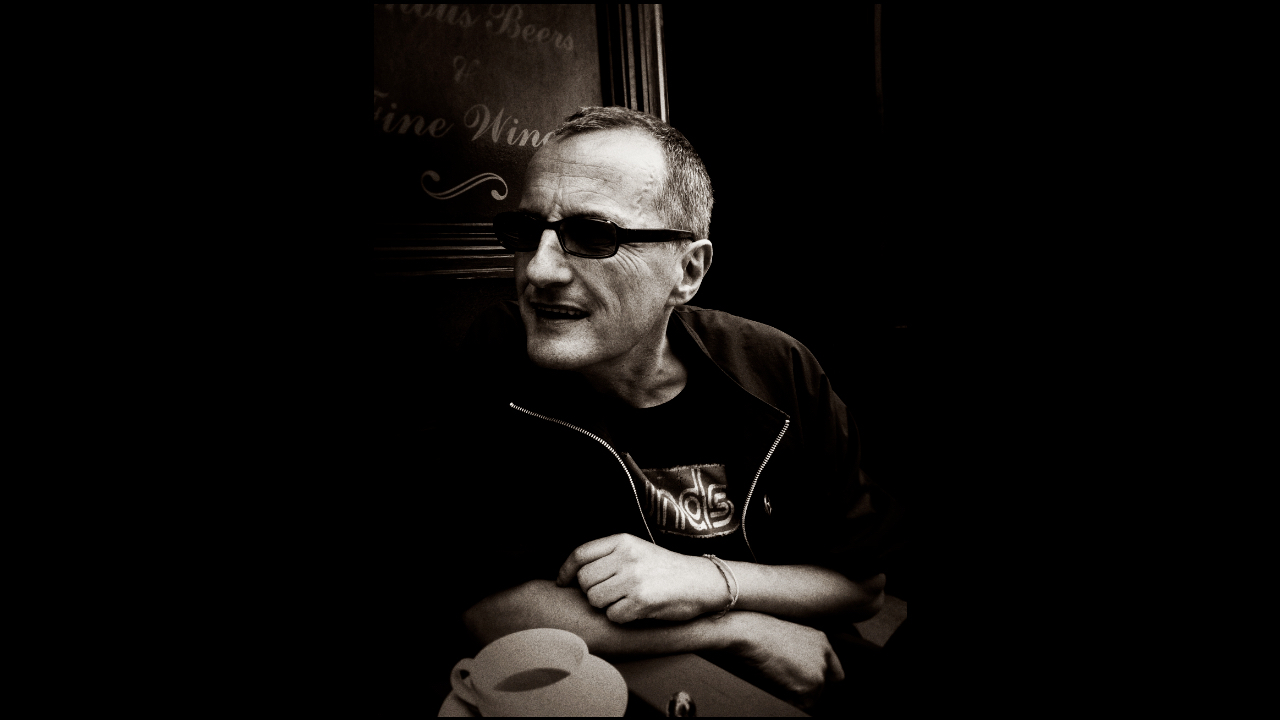It’s been quite a few years since the ‘broken nosed guitar hero from Southend’ (© Sounds music weekly) blazed his trail, topping the US album chart and selling out stadiums with his dynamic trio, the inventively named Robin Trower Band. At the time, the critics were divided. Some thought Trower was nothing more than a Hendrix rip-off playing fuzzy, bombastic downer rock for the anaesthetised masses. Others recognised that behind the Marshall-heavy riffs there was a real talent, producing exciting and original music, exploring the outer limits of his instrument.
Trower’s Bridge Of Sighs (1974) still remains one of the finest guitar albums of all time: crammed with sublime, tempered playing and the honey-sweet vocals of the late, great Jimmy Dewar; full of gorgeous harmonic changes, brooding intensity and dramatic moods. Unlike albums by many a guitar hero with admirable technique but no direct line to a songwriting muse, it is not a relentless barrage of guitar solos, but a selection of memorable songs – the muscular Day Of The Eagle, the smouldering In This Place, the groove of Too Rolling Stoned – that showcase beautifully the diverse, expansive talent of the group.
It was a breakthrough album and a pinnacle in the guitarist’s career, which they and he never equalled in terms of success and sales. But there’s a lot more to Trower’s career than that record.
“The material on Bridge Of Sighs is very strong,” he agrees. “The combination of beautiful vocals and raw guitar is what sold it. But it certainly wasn’t the beginning and end of the story.”
These days looking dapper and relaxed, Trower generally has the air of someone completely comfortable in their own skin, rather than exuding the air of a bitter and twisted forgotten hero. He does, however, admit that “there have been some tough times in the past. At the height of our success I was badly let down by the management and record company. And today I don’t make any money from some of my most successful songs. But you have to move on. You cannot let that strangle your creativity.”
In fact nowadays Trower is busier than ever, and is currently involved in various projects that includefilm scores, ambient music and an unlikely collaboration with Roxy Music vocalist Brian Ferry.
Trower has also put together a new band – with Davey Pattison (ex-Ronnie Montrose’s Gamma) on vocals, Dave Bronze on bass and Pete Thompson on drums; the same line-up as on his recent Living Out Of Time albums (one live, one studio) and DVD – and has just toured Britain and Europe. Although performing on stage today can be a financial struggle, and not as rewarding for him as the days when he played to packed houses at sold-out stadiums, Trower still feels that for him playing live is a necessity.
“I have to continue playing live, because I greatly believe if I stop touring I’ll stop being creative,” he says. “It’s getting up in front of an audience which fires up the whole thing.”
Relaxing after a recent DVD shoot, Trower chatted happily about his long and varied career which has spanned a remarkable 40 years, and taken in the heady hysteria of the colourful, poptastic 60s, a phenomenal singles chart success with Procol Harum and, of course, his illustrious solo career.
A down-to-earth Essex boy, his interest in music began with an elder brother’s record collection; the Trower home used to reverberate with the rockin’ sounds of Jerry Lee Lewis, Gene Vincent and Elvis Presley. Initially it was an album cover that inspired an 11-year-old Trower to become a musician, as he recalled: “I saw a picture of Elvis Presley playing guitar and that was it. I asked for a guitar for Christmas and never looked back [laughs]. I seemed to have an ability to play; it’s like I already knew how it worked.”
Southend has always had a thriving music scene, and a few years and a few school bands later a teenage Trower found himself playing with his first professional group, The Paramounts, who immediately embarked on one of the numerous tour packages of the 60s. One of those involved a support stint with The Beatles – who didn’t particularly impress the up-and-coming guitar slinger. “We had the same booking agency as [Beatles manager] Brian Epstein, and we played on the The Beatles’ last tour,” Trower recalls. “They weren’t that good live, but they were nice guys.”
It was The Rolling Stones who made more of an impression on Trower, and were also responsible for giving The Paramounts a much-needed boost: “They were great to us. We supported them when they brought out their first single. They liked us and they recommended us to the all club owners. It was through them that we got our first record deal.”
At this time, around the mid-60s, Trower thought of himself as merely a jobbing musician and had absolutely no aspirations to be a lead guitarist. “I didn’t take playing lead guitar seriously until after I joined Procol Harum,” he says.
While still with The Paramounts, Trower had started to develop a serious interest in the blues, and this inspired him to put together his own band, called The Jam. At the same time, former Paramounts keyboard player Gary Brooker was forming Procol Harum (who would later achieve phenomenal success with the now classic Whiter Shade Of Pale).
Unhappy with the guitarist and drummer in Procol,Brooker called his former Paramounts bandmates Trower and BJ Cole, both of whom immediately leapt at such a golden opportunity.“Up to that stage I’d just been playing pubs and clubs,” Trower recalls. “ With Procol I went to the States and played venues like The Winterland and The Fillmore. It took it all to another level. I look back on it as my school. It’s where I learnt about recording and proper touring.”
It was during a Procol tour in San Francisco that Jimi Hendrix died. They decided to write tribute to Jimi – Song For A Dreamer – for their next album, Broken Barricades. Trower went about the task of producing some music, as he recalls, to “capture the spirit of the man”. Surprisingly, up until this point he had only heard one Hendrix album: “I only had a copy of the first album, which I loved. When I wrote the music for …Dreamer I listened to all his albums a few times, and that’s when his playing started to seep into my own creativity. The stuff I started to write from then on was very influenced [by Jimi].”
Getting properly acquainted with Hendrix’s music had a life-changing effect on Trower, convincing him that it was time to move on. “Songs For A Dreamer seemed to open the floodgates, and I started writing more and more for the guitar. And there wasn’t room for that in Procol Harum.”
The first band he formed after his departure from Procol was Jude, which featured powerhouse Scots singer Frankie Miller. Although nothing came of this collaboration, it was through Miller that Trower was introduced to former Stone The Crows bassist/vocalist Jimmy Dewar. Trower regards that meeting as being “probably the luckiest day in my life”.
Deciding to form a three-piece and make the sound more guitar-oriented, alongside Dewar, Trower brought in drummer Reg Isadore. Record company interest in the band was strong and they soon signed to Chrysalis, and shortly afterwards, in March 1973, the Robin Trower Band (although the records were released under just Trower’s name) released their debut album, Twice Removed From Yesterday. As Trower explained, they had a clear vision of what they wanted to achieve: “When we recorded, we visualised doing it live. My favourite albums are live albums.”
The next album was Bridge Of Sighs, in 1974, which remains his career high point. With that superb album and some exhaustive touring schedules, the band began to achieve success on a worldwide scale.
Then came the onslaught of Hendrix comparisons. However, Trower did not take those comments the way most people would expect him to have done.
“Well, ultimately it’s a compliment,” he says. “I mean, if you’re going to get compared to someone, who better than Jimi Hendrix? But eventually it did become boring.”
Reg Isadore left and was replaced by former Sly & The Family Stone drummer Bill Lordan for what was another killer album, For Earth Below, and 1976’s patchy Long Misty Days. By the time Trower released In City Dreams in 1977 Jimmy Dewar was taken off bass (Rustee Allen was brought into the band) and stuck out in the spotlight. As great a singer as Dewar was, ultimately it was an experiment that failed, and by 1980’s Victims Of Fury Trower reverted to the tight-knit trio of the mid-70s.
But all wasn’t well, and although the band were still pulling big crowds Trower wasn’t happy: “I didn’t feel we were getting anywhere,” he says. “We were touring the States and it felt like we were going through the motions. I thought I needed to change personnel, to move forward musically and come up with something that sounded a bit different”.
Which he did, and recorded the album B.L.T. under the banner Bruce, Lordan & Trower, with former Cream bassist/vocalist Jack Bruce in place of Dewar, and Truce in 82 with Isadore in place of Lordan.
Trower seemed to slip off the radar in the early 80s (a combination of a changing musical climate and business problems didn’t help), although he continued to tour and release albums to varying degrees of success. It was during this period that he was approached by Bryan Ferry’s management to collaborate on Ferry’s new solo album Mamouna.
“They asked me to play on some tracks,” Trower explains. “Brian liked my input, and I eventually got to co-produce a couple of albums. He is an amazing person. He’s got a great instrument – that voice.”
Robin Trower’s latest album, Living Out Of Time, released earlier this year, started off as a set of songs he had written for American guitarist Eric Gale, who supported Trower in the US a few years ago. When the project fell through, Trower decided to return to the studio and record them himself.
“I had these songs and I thought maybe I should do them, but I thought who can I get to sing them?”
It was at Jimmy Dewar’s funeral (he died of pneumonia in 2002) that Trower was reacquainted with former bandmate Davey Pattison. “I hadn’t seen Davy since we worked together in the 90s. I asked him to try the songs out, and it went well. And because the last time we worked together we had Pete Thompson and Dave Bronze, it seemed like a good idea to get together again. This really is a classic line-up. We know each so well, it comes out in the playing.”
The album marks a return to form; it’s classic Trower, with all the key ingredients, in a modern setting. While other guitarists seem to discard their past, Trower recognises what his audience wants, and delivers without compromising his musical integrity or authenticity.“I like to think that my music has depth to it, that it grabs hold of people. I don’t think everything I’ve done is great; a lot of it is crap. But the really good stuff, the more you hear it, the more interesting it becomes, and that’s what stops it from dating. Living Out Of Time is a good overview of where I’m at. I feel that I am in the wrong time – and proud of it.”
This was origionally published in Classic Rock issue 95.

